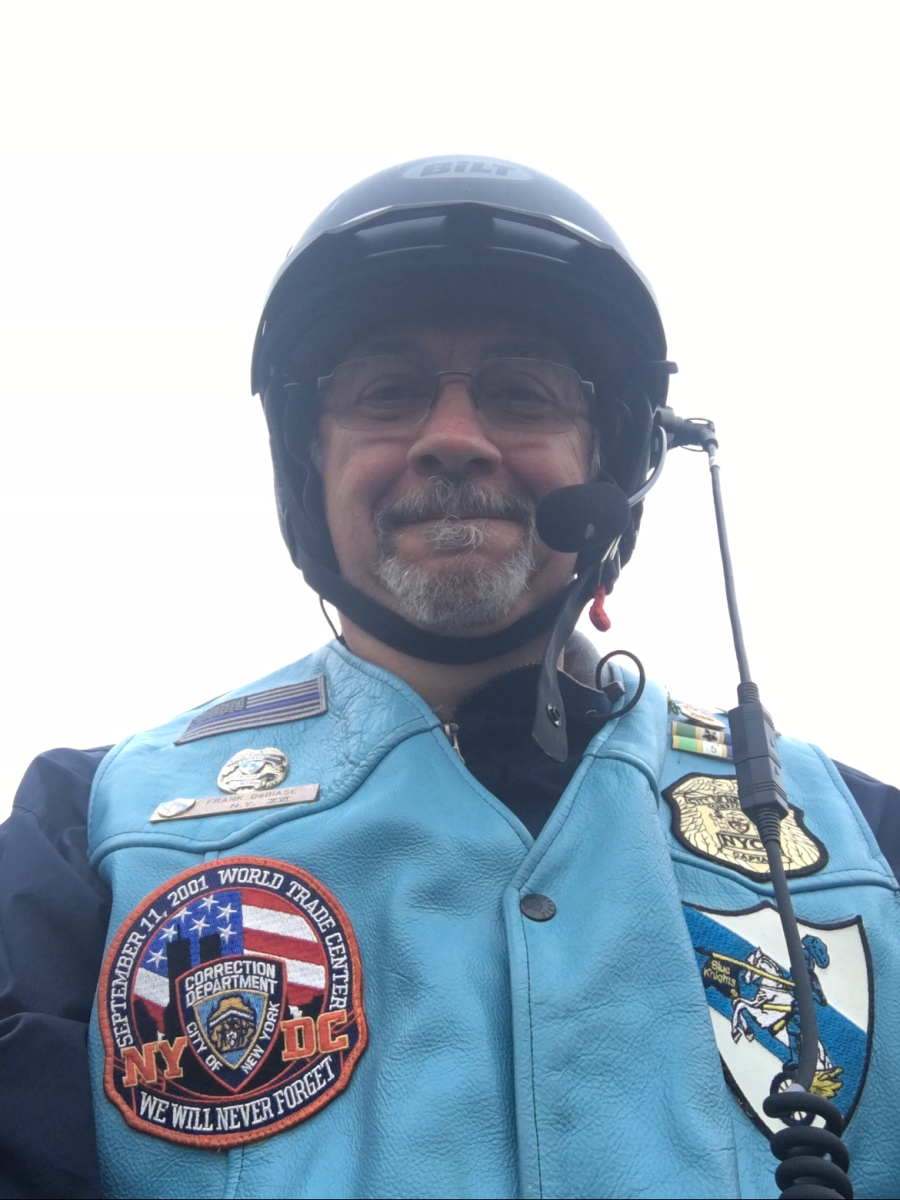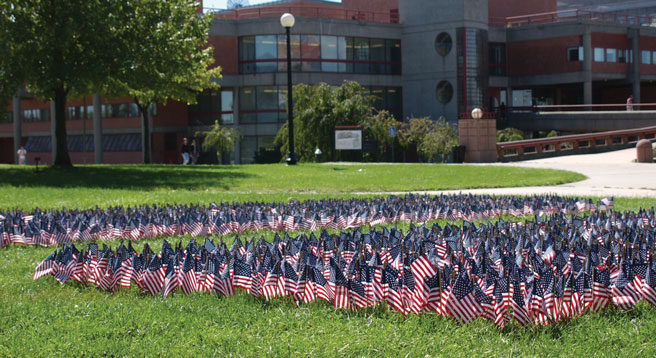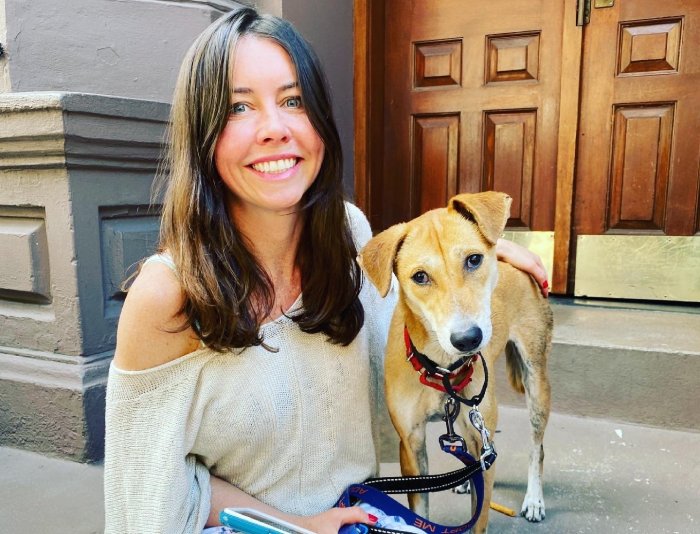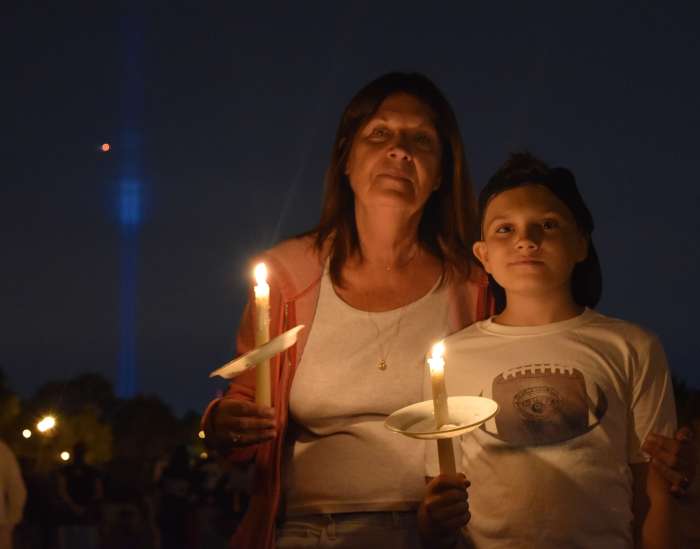For the past 19 years, the 9/11 Vigil Committee in Middle Village has held a candlelight vigil and prayer service at Juniper Valley Park to honor and remember those who perished in the Sept. 11, 2001, terrorist attacks at the World Trade Center towers.
The committee — which is made up of a group of volunteers from the Middle Village and Maspeth communities — was established immediately following the tragic events of that day. It has brought together hundreds of members from churches, schools and local organizations to Juniper Valley Park’s 9/11 memorial garden, where a granite plaque was installed in remembrance of the thousands of lives lost at Ground Zero.
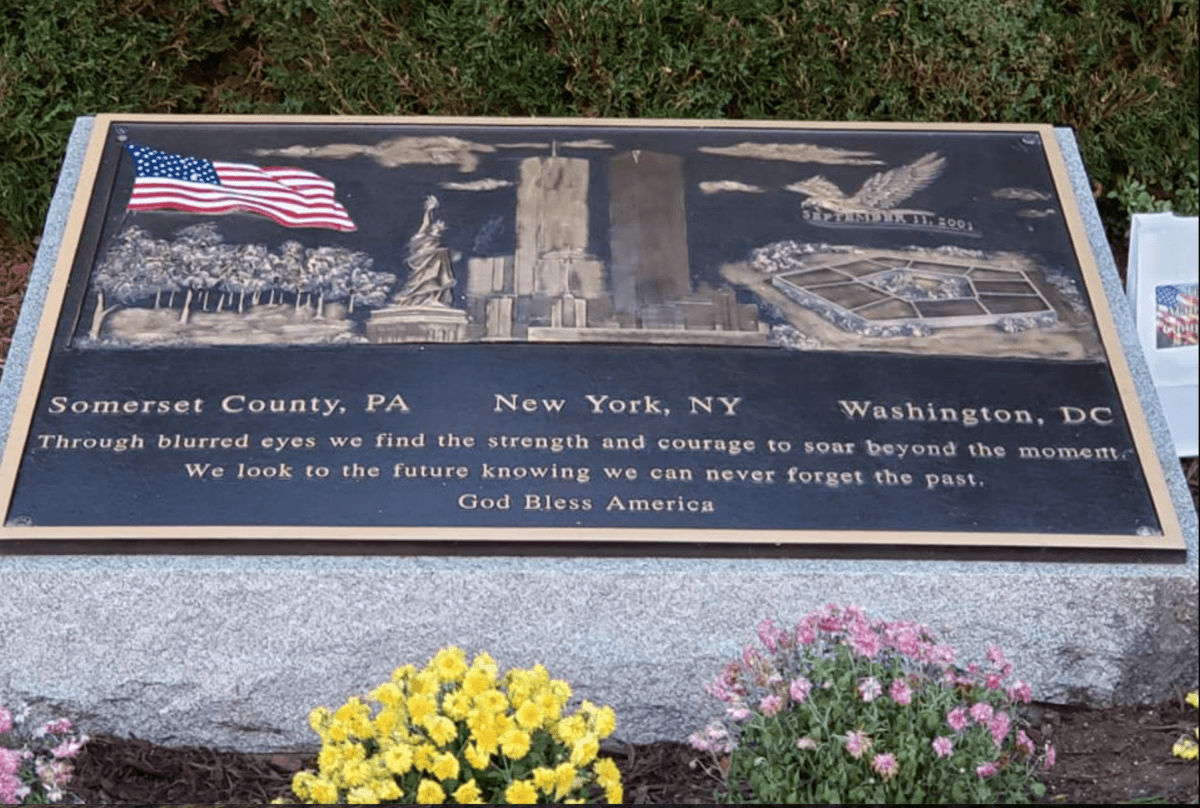
As the number of attendees has dwindled over the years to 400 people, Frank DeBiase, president of the 9/11 Vigil Committee, said he is expecting a larger gathering this year to commemorate the 20th anniversary of 9/11.
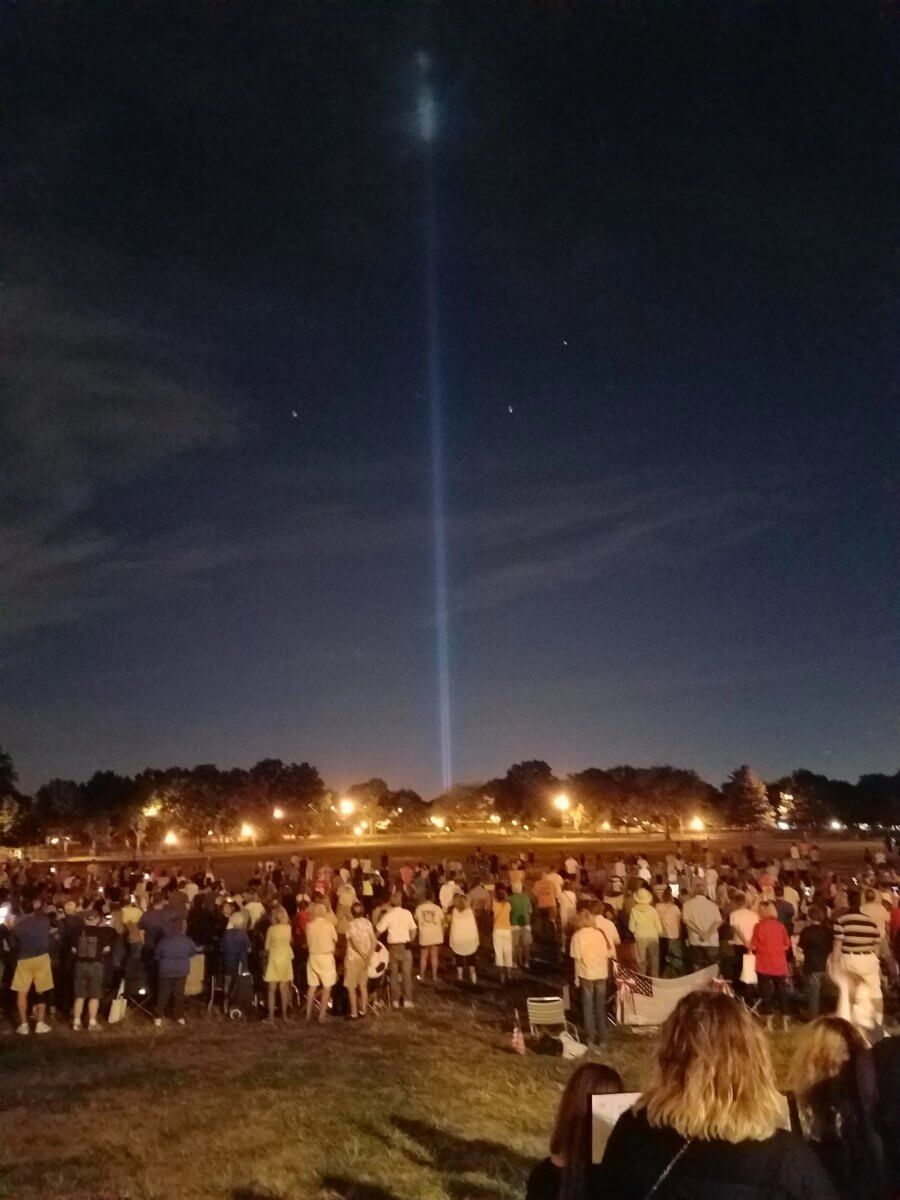
According to DeBiase, who was also a first responder at Ground Zero, it is of utmost importance to remember and never forget the events that unfolded on 9/11.
“Forgetting something like this is outright upsetting. I go to local schools and are invited by teachers to speak to kids about it,” DeBiase said. “It’s just as important to always remember and share these things with them.”
Like his neighbors, DeBiase lost two dear friends who were 9/11 first responders.
DeBiase, who is a retired corrections captain of the Support Services Division on Rikers Island, recalls the events of 9/11 vividly.
He started his workday at 5:30 a.m. with a cup of coffee and a bagel before hopping on the highway to Rikers Island.
While he reported to the commanding officers conference room for the weekly planning meeting, his secretary burst in and said, “Sir, put on the TV. The World Trade Center has just been hit by an airplane and is on fire.”
As DeBiase and his team watched the news on television, they were all trying to make sense of the situation, he said.
“‘Must be a freak accident,’ ‘those poor office workers’ and ‘that will be a tough fire to get under control,’ were some of the comments that went around the room,” DeBiase said.
As minutes passed, with the news of a second aircraft hitting the Pentagon and another hitting the other World Trade Center tower, and yet another plane crash in Pennsylvania, DeBiase said it became all too evident that the nation was under attack and that the city was “Ground Zero.”
While DeBiase’s unit — which was usually called when a water main broke, or when electric outages occurred when Rikers was flooding or snow was piling up — was sure that at any moment they would get a call to dispatch their heavy equipment (pay-loaders, back-hoes and bulldozers) to the scene of the attack, they were prepared and readied all personnel to respond to the unprecedented emergency, he said.
“There were thousands of people in the twin towers when the attacks took place and a rescue effort was in full swing,” DeBiase said.
Later that day, DeBiase, along with officers and civilian tradesmen, were dispatched to the NYC Morgue in Manhattan.
DeBiase’s unit helped convert the street adjacent to the facility into a high-volume intake area for the receipt of human remains. Tents were erected for everything from examination tables to fingerprinting stations, photography stations and rest areas. There was even a makeshift chapel.
As they got closer to the World Trade Center site, the streets were empty and abandoned. There was an acrid smell of “burning everything,” DeBiase said.
“The scene was surreal. Mountains of ruin, countless volunteers passing buckets of hand-dug debris from one to the next. It was a sea of humanity, determined to find some way of help,” DeBiase said. “So many lives lost, so many friends — it was the same thought going through everyone’s minds.”
While DeBiase assisted in the transfer of remains from the ambulances to the pathologists and then to the refrigerated trailers, he says he will never describe or discuss what his team recovered on a regular basis as they sifted through the rubble.
When an ambulance arrived containing the remains of a firefighter or police officer, workers at the site would stop what they were doing and line the street.
“We would all stand at attention and salute the vehicle until the fallen ‘hero’ was removed and sent to the pathologists for processing. Unfortunately, this ritual continued several times per day, weeks on end,” DeBiase said.
While working at Ground Zero among the thick smoke and stench, DeBiase developed a sore throat. His mother, who was a teacher at St. Margaret’s in Middle Village, sent a delivery of 1,300 pounds of candy and throat drops donated by students.
“We had enough to last us for the duration of the recovery effort. It was gestures like that which defines who and what we are as a people during this most challenging time,” DeBiase said.
For DeBiase, he will always be proud that he was in some way involved in the 9/11 recovery effort.
“The torn rotator cuff I sustained while lifting a body out of the wreckage and the subsequent surgery will always remind me of the job we did in the aftermath of that horrific day,” DeBiase said.
In 2002, DeBiase received an “Outstanding Duty Award” from his department and although the word “hero” was written in the citation, he says he does not “in any way, shape or form feel like a hero for what I did as a first responder.”
“I reserve that distinction for the hundreds of firefighters, police officers and patriot civilians who perished that day in the most cowardly act of terrorism our country has ever known,” DeBiase said.
According to DeBiase, the world as we knew it was forever changed on 9/11.
“However difficult, however much we desire to move forward, it is up to us to tell the story and keep the memory of those who perished alive in our mind and in our hearts,” DeBiase said. “What happened right here, in our city, in our country should never simply be the next chapter in a history book. God bless America and never, ever forget.”

